To organise this a little bit, I decided to put it in sections with bold titles. Feel free to skip around - this is not really a linear post because of how much I have to write about!
Student Responsibility
Here's the big lesson I learned this week: When you give students some authentic responsibility, they become more responsible. I've put the responsibility on them for figuring out how to earn their credit hours (for more information see the Flex Time section). Not only is it teaching them the real-world skill of managing their own attendance with a time-card system, but it gives them a freedom they've never had before.
The coordinator for the program walked in and noticed how many "trouble kids" I had in my room and how engaged they were, how exciting the atmosphere was, and how HAPPY the kids seemed. I had three of "those" trouble kids playing a grammar game on ChompChomp today, and they actually played three more games than I required (with the sound turned up to accompany their own sound effects of pleasure when they got their prizes for right answers). They thought they would get in trouble for "doing too many games" so they kept pretending they "accidentally started it over" because they were A) having so much fun, and B) learning a lot. That moment was pretty freaking cool.
It's also been cool to see older students respond to some of the mainstays of my FlipClass. We used Today's Meet for live response while we watched Anne Frank: The Whole Story (on YouTube! all of it! three and a half hours!). They loved being able to ask questions. And with firm rules up-front (I've learned the necessity of that), they did really well with it. Their questions were awesome. Their engagement was awesome. They still felt the power of the film while slightly distracted. And again, their questions often showed how wide the holes in their understanding really were. We discussed history, vocabulary, plot, philosophy, pretty much everything. It scares me to think how much they don't understand if we don't do things this way. And it's fun to see what's in the kids' heads while we watch something.
Self-Paced Flipped Mastery Model
This program is designed to be credit recovery, based on the needs of the students. Instead of doing busy-work, they are doing skill building assignments with specific feedback for where they need improvement. I've divided all the assignments for this first unit (focusing on diagnosing and building specific skills) into two different tracks: Skill Track and Daily Work Track.
The DW track is built on four areas:
1. grammar (see the DOL/grammar section for more details)
2. silent reading (see the RSS as SSR section for more details)
3. effective research techniques (we use A Google A Day...yeah, just see the Google a Day section...)
4. checks for understanding (daily exit tickets through Edmodo)
Then there is the skill track. I went through the Common Core Standards for California and identified some important skills they needed to master:
1. Choose evidence from a text and use it in analysis
2. Determine a theme/central idea and analyse it
3. Discuss how the author uses techniques and what effect it creates
4. Determine meaning of new words through various techniques
5. Demonstrate understanding of figurative language and the nuance/complexity of a text
6. Write an objective summary of a text
7. Use descriptive, sensory, show-not-tell language in writing
8. Explain a concept in writing in a clear and effective way
9. Persuade an audience in an appropriate way using claim/counterclaims
10. Speak in a variety of settings in genres/purposes appropriate to the setting
So I built assignments that cover each of those main skills. The first assignments assessed, then built on those skills. I made videos where appropriate, and used sections of Rena's Promise, a memoir from a Holocaust survivor. Here are some of the assignments and what they assessed:
1. Read this section of Rena's Promise, write an objective summary, and find three quotes to fit a theme.
2. Find a pattern in the text and move the black circles over every word in that pattern. Then explain how the pattern shapes or affects the text.
3. Take this section of Rena's Promise and re-write it from a different perspective using show not tell language.
4. Research what "resilience" means and find three people who show resilience in some way. Write it up into an essay in a standard expository format.
etc.
Now, while students do the daily work all at the same time, they work on the skill assignments at their own pace. As long as they complete a certain set of skills by the end and can show mastery of those skills, they pass. For the kids who work at a slower pace, the mantra I keep giving them is "Quality over speed or quantity." It's amazing how much better their work got once they realised that they didn't need to rush to finish it at the pace their classmates were going. So some kids are on S3, and some are on S13. It's pretty cool too, because the kids who have higher skills get to do it on their own, then help their friends when they get to that same assignment.
It's working out really well so far. It also allows me to quickly identify the students who really need my help to build their skills, and which students just need practice on their own.
I know someone will ask about grading, so this is the best answer I can give: the daily assignments are worth less than the skill assignments. I only grade completed skill assignments so the ones they don't get to don't even factor into their final grades. I will give them mastery finals for whatever skills they have worked on and that will determine a larger part of their grade than the skill assignments or daily assignments. So it's points-based, but not entirely points-driven.
Grammar & DOL
Looking at the DOLs I used this past year, I realised that there were a few problems with it. I've been using the Caught'yas that have Shakespeare plays as the source of the daily sentence corrections. I've written about it in previous posts already, so I won't rehash it all here.
But the problems I noticed were:
1. students didn't get targeted help in their weak areas
2. students lost track of the story when it was so spread out
3. we didn't apply it to their writing right away, so it wasn't quite as effective
4. some students said (in their final course reflection) that they would just wait until we went over it together and then submit it on Edmodo so they "didn't have to try that hard"
5. it was a lot of the same with the capitals, punctuation, etc. with not enough emphasis on more difficult skills (who vs. whom, numbers, etc.)
So I made some changes. Here's what we're doing:
On Monday, we're watching a short clip of the part of the play covered that week. Most are available on YouTube. After that, I have them do the DOL on their own and submit it.
On Tuesday, they check their DOL from Monday, where I've posted a comment with whatever skill I think they most need to work on. Then they have a few minutes to go play a grammar game based on that skill and post the results on Edmodo in Tuesday's grammar activity. After that, we either correct Monday's DOL together or I give them a new one. If I give them a new one, I have them do it on their own first and submit it. Then they click "Resubmit this assignment" and we do it together.
I use Word to revise the DOL on the overhead, and I've started using "Track Changes" to make it easier for students to follow, due to my student teacher's excellent suggestion (thanks Samantha!). The kids correct it in Edmodo and make sure to take all the notes before they submit it again. That way, I can see how they did on their own, then keep consistent with the Caught'ya method of making all the corrections together. It's working pretty well.
On Wednesday, we do the same thing as Tuesday, only they submit the DOL on their own, then I give them an immediate grammar game to work on before we go over it together.
The final DOL of the week is on their own to see what they've learned. I only assess them on what they've worked on in their grammar games that week. I think I might add some questions about the plot from the week's DOLs to assess if they're following the story.
Here is a screen shot of what it looks like (the first one is the one the student did on her own, and the second is the one with our notes/corrections together):
In our #flipclass chat a few weeks ago, we talked about teaching students tech skills, but particularly research skills. I was pretty intimidated by this, because I've never taught kids how to Google. I just assumed they knew how...until I saw them do it.
Yeah, they need help. Desperately. That's were Google a Day comes in. Every day they get a new question that requires careful googling to find the answer. I will post a tip each day (explaining how to use phrases in quotation marks, using google as a calculator, dictionary, or translater, using +/- in searches, etc.) and then they play. Sadly, the school network blocks Google+ so kids just have to play the "regular" game and write down their time and their answer.
The kids really enjoy it and I've seen them use some of the advanced search tools I've taught them already.
I'm still working on the next steps for these skills. If you have ideas or lessons, let me know!
RSS vs. SSR
I stole the idea of using RSS feeds for SSR from The Tech Classroom (the blogger is another English flipper...a rare breed of English teacher!) She wrote about the idea a few months ago, and I thought it wouldn't work for my kids. Until I figured out that we could use Google Reader instead of an app (Pulse) for kids without smartphones (because strangely, unlike my regular-year classes, my students right now don't all have smartphones).
Setting up the Google Reader was easier than I expected. I set two requirements:
1. They needed at least one news site (I recommended BBCNews or CNN)
2. They needed at least one science or technology site (I recommended Wired, National Geographic, or KQED's science/technology pages)
No one pushed back at all to those requirements. And just to make sure they got how to do it, I left my RSS feed on the screen so they could see how I used it during reading time. I, of course, added I Can Has Cheezeburger? to mine, and when I heard them laughing a little, coinciding with when my scrolling revealed a new LOLCat, I reminded them that they could add anything they wanted to their feeds.
They LOVE RSS time. It was by far the biggest vote getter in the week one survey question "What is your favourite daily activity from class?" Here are some of their responses:
"rss is my favorite because we get to have a quiet time to read what we want"
"Rss is my favorite because I usually read news and updates on what is going on today, or at the moment in our society and i feel well informed."
"RSS because I like to read about what's going on in the world"
"I like RSS because I actually read and it was things that I WANTED TO READ not what someone told me to read. And I was able to read things I found interesting."
and my favourite response:
"RSS is the best because I get to see what kind of new news is going on the world...like the article I read today on Pulse that Titan might have life."
How cool is that? On top of loving RSS, they were so excited about what they had read six hours before that they had to put it in their answer! Love it.
Need more proof that they love it? Here's a video I took yesterday during RSS time.
When I started writing this post, the school day was "over," but I still had one student working long after the bell announced the end of the week at 2:10. What could have possessed a 17 year old boy to stay an hour and a half after summer school was over for the week to read a few articles and write summaries of them? It was the flex time system I talked about a little in my last post.
Want to see the best visual proof you can get for the efficacy of using Flex Time? School starts at 8:20. These videos tell a pretty amazing story.
1. When students come in, I record their time on a Google Doc. I also record when they go to lunch, come back from lunch, and leave for the day.
2. My IWE adds up the minutes they've earned every day, and I pass those along by posting a list on Edmodo twice a week. In the Exit Tickets they do on those days, I ask them to tell me their plan so I know they're thinking about it.
3. If they want to come in early or stay late, I ask them to request that a day in advance so I can plan for it. The really crazy part is that there are always five or six kids who are standing outside my room waiting for me when I get there at 7:30. We "start" at 8:20.
4. If they decide to work through their breaks or lunch, they have to be on-task, just as they would be normally. If it veers into socialising, I give them one warning, and then move them away from each other. I've only had to move one student on one day. The next day, he moved back and was fine.
5. They get two 10-minute breaks during the day. If they don't take them, they can "bank" the minutes. It's so awesome for this main reason: I don't have to write passes. If they need to use the restroom, get water, take a call, change clothes, get some food, or whatever, they just tell me that they're taking their break. Because they are self-paced, they can choose the time that works best for them in their workflow. And honestly, only about half of my students have ever taken even a single break this week.
6. When they've earned their credit hours, they are done with the course. The only caveat is that they have to have mastered their final assessments before they are done. I have kids who have banked a full day's worth of minutes already because they have soccer practice, a doctor's appointment, or a family obligation at some point this summer and they're already planning for it.
*******
Still reading? I think that's it. If you have questions, let me know! Thanks for reading. It's crazy that even though I am properly exhausted (for issues unrelated to teaching or school), I am still super excited about teaching. And I can't WAIT to get back to work in August.
The even better news is that my current school offered me all the sections of Green English 11 there are. That means that I'd get to keep my students from this past year. I won't have to teach them how to do Flipped Class...they already know. They have Edmodo. They have Twitter. They get me. They like me. I like them.
Pretty freaking awesome. This could take flipping to the next level for me. It's new content for me, but I'll also have an English 10 so I can perfect that curriculum over another year.
There is so much to be excited about....including the fact that my school is paying for my virtual registration for FlipCon12, AND paying me to "attend" with a few of my favourite colleagues. And they're buying us copies of Flip Your Class too.
School just doesn't get much better than that.

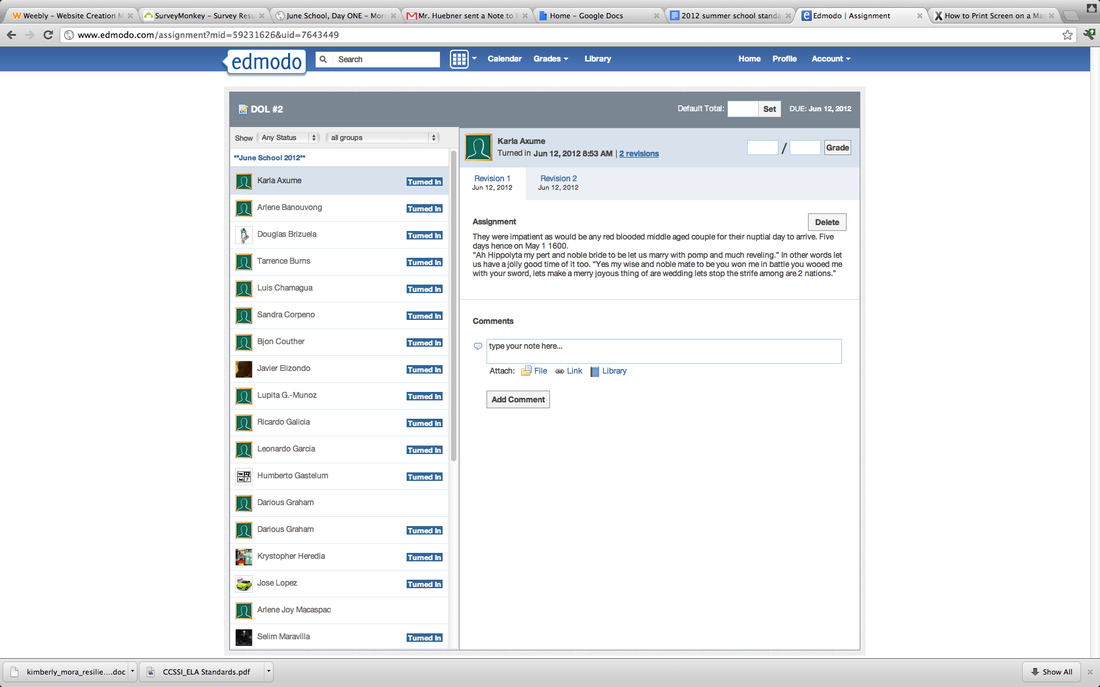
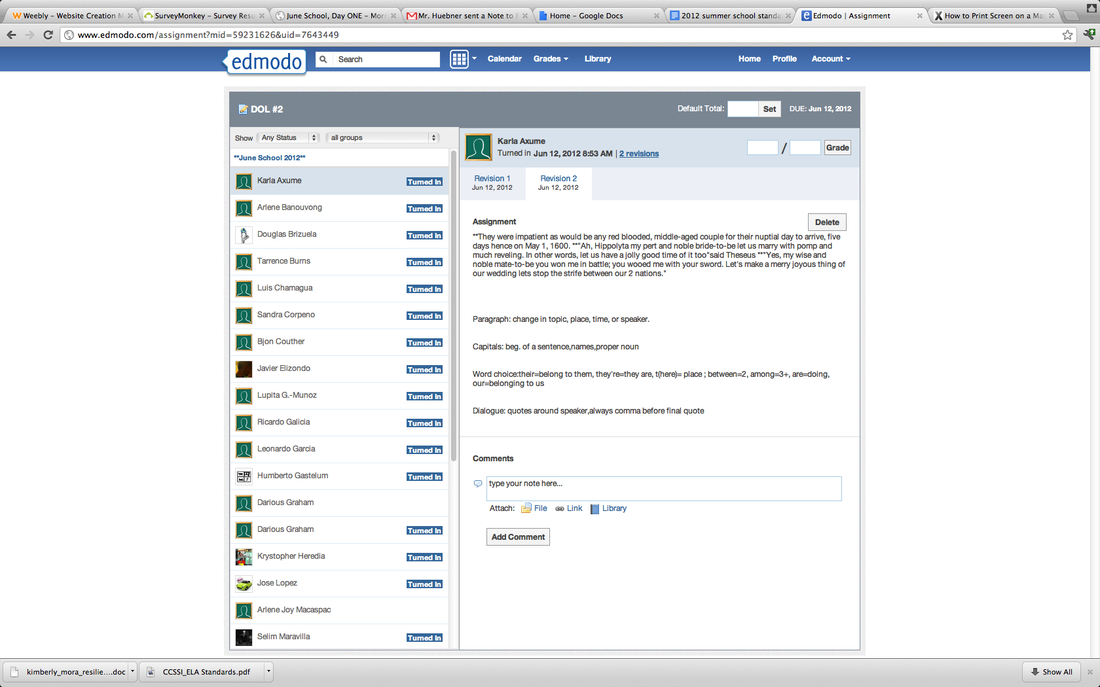
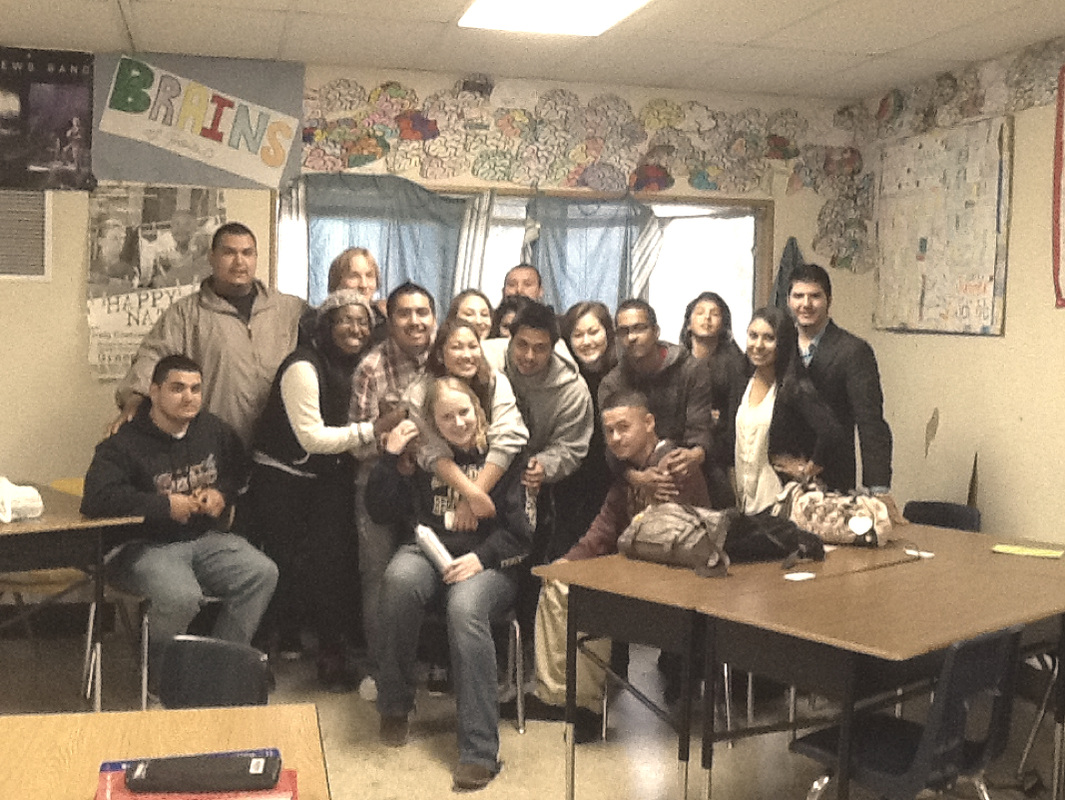
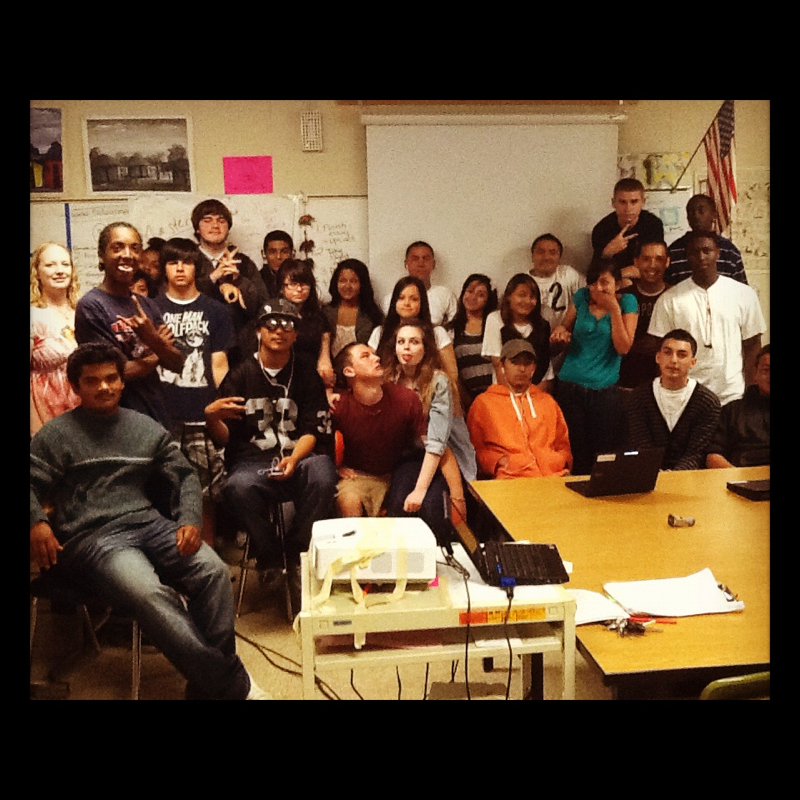
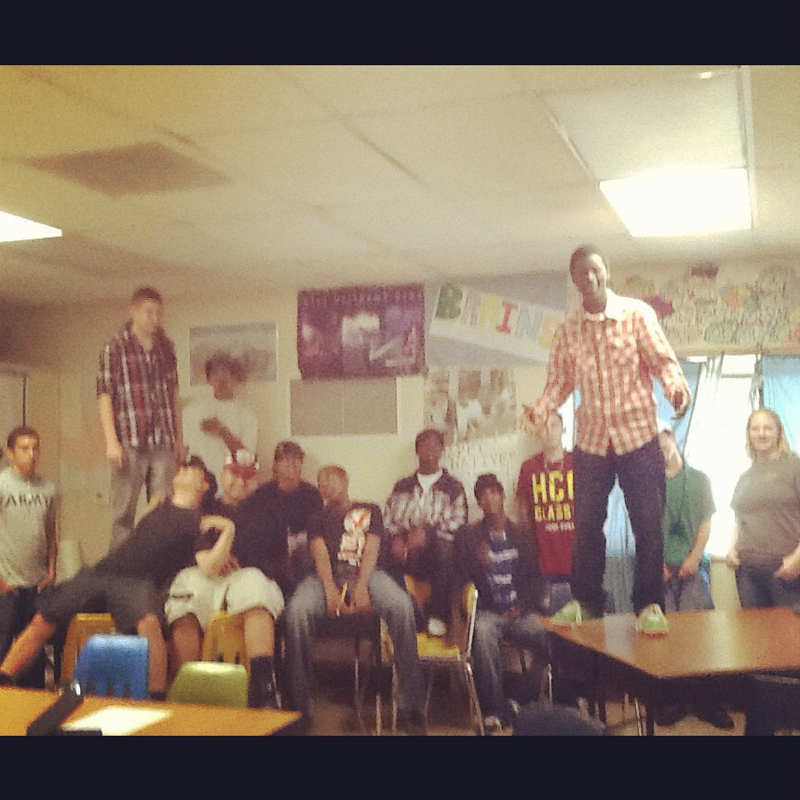
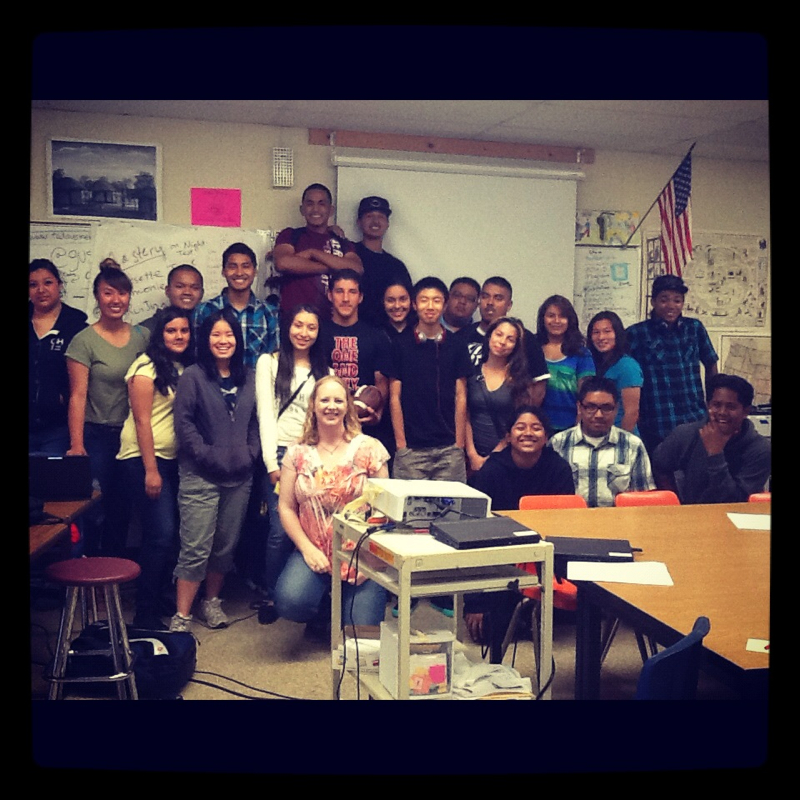
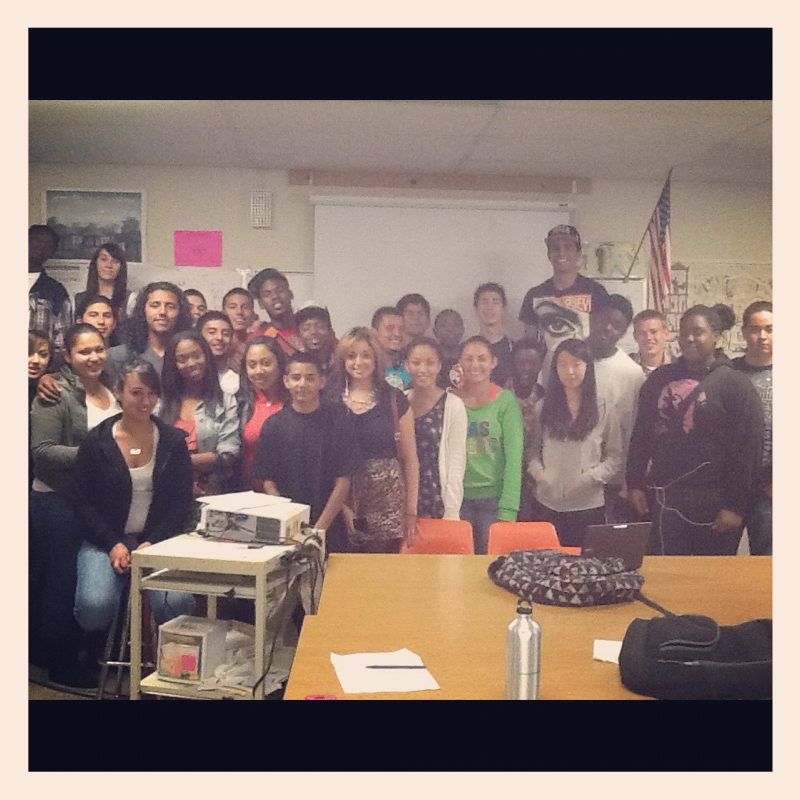

 RSS Feed
RSS Feed
